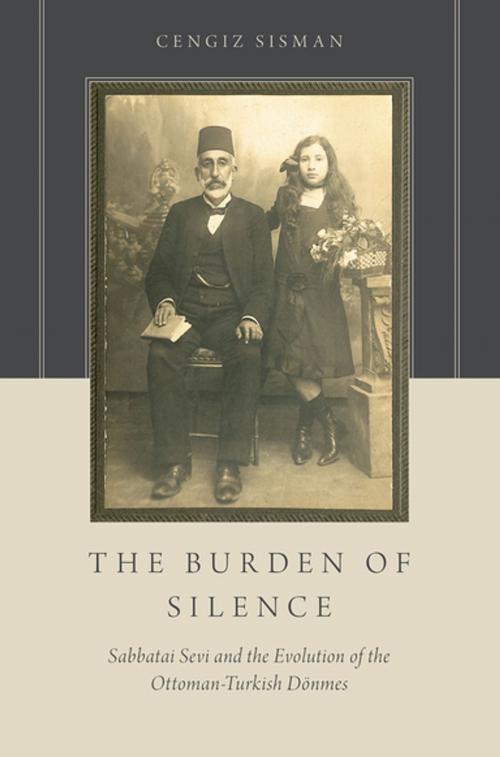The Burden of Silence
Sabbatai Sevi and the Evolution of the Ottoman-Turkish Dönmes
Nonfiction, Religion & Spirituality, Judaism, History, Middle East| Author: | Cengiz Sisman | ISBN: | 9780190463809 |
| Publisher: | Oxford University Press | Publication: | September 1, 2015 |
| Imprint: | Oxford University Press | Language: | English |
| Author: | Cengiz Sisman |
| ISBN: | 9780190463809 |
| Publisher: | Oxford University Press |
| Publication: | September 1, 2015 |
| Imprint: | Oxford University Press |
| Language: | English |
The Burden of Silence is the first monograph on Sabbateanism, an early modern Ottoman-Jewish messianic movement, tracing it from its beginnings during the seventeenth century up to the present day. Initiated by the Jewish rabbi Sabbatai Sevi, the movement combined Jewish, Islamic, and Christian religious and social elements and became a transnational phenomenon, spreading througout Afro-Euroasia. When Ottoman authorities forced Sevi to convert to Islam in 1666, his followers formed messianic crypto-Judeo-Islamic sects, Dönmes, which played an important role in the modernization and secularization of Ottoman and Turkish society and, by extension, Middle Eastern society as a whole. Using Ottoman, Jewish, and European sources, Sisman examines the dissemination and evolution of Sabbeateanism in engagement with broader topics such as global histories, messianism, mysticism, conversion, crypto-identities, modernity, nationalism, and memory. By using flexible and multiple identities to stymie external interference, the crypto-Jewish Dönmes were able to survive despite persecution from Ottoman authorities, internalizing the Kabbalistic principle of a "burden of silence" according to which believers keep their secret on pain of spiritual and material punishment, in order to sustain their overtly Muslim and covertly Jewish identities. Although Dönmes have been increasingly abandoning their religious identities and embracing (and enhancing) secularism, individualism, and other modern ideas in the Ottoman Empire and modern Turkey since the nineteenth century, Sisman asserts that, throughout this entire period, religious and cultural Dönmes continued to adopt the "burden of silence" in order to cope with the challenges of messianism, modernity, and memory.
The Burden of Silence is the first monograph on Sabbateanism, an early modern Ottoman-Jewish messianic movement, tracing it from its beginnings during the seventeenth century up to the present day. Initiated by the Jewish rabbi Sabbatai Sevi, the movement combined Jewish, Islamic, and Christian religious and social elements and became a transnational phenomenon, spreading througout Afro-Euroasia. When Ottoman authorities forced Sevi to convert to Islam in 1666, his followers formed messianic crypto-Judeo-Islamic sects, Dönmes, which played an important role in the modernization and secularization of Ottoman and Turkish society and, by extension, Middle Eastern society as a whole. Using Ottoman, Jewish, and European sources, Sisman examines the dissemination and evolution of Sabbeateanism in engagement with broader topics such as global histories, messianism, mysticism, conversion, crypto-identities, modernity, nationalism, and memory. By using flexible and multiple identities to stymie external interference, the crypto-Jewish Dönmes were able to survive despite persecution from Ottoman authorities, internalizing the Kabbalistic principle of a "burden of silence" according to which believers keep their secret on pain of spiritual and material punishment, in order to sustain their overtly Muslim and covertly Jewish identities. Although Dönmes have been increasingly abandoning their religious identities and embracing (and enhancing) secularism, individualism, and other modern ideas in the Ottoman Empire and modern Turkey since the nineteenth century, Sisman asserts that, throughout this entire period, religious and cultural Dönmes continued to adopt the "burden of silence" in order to cope with the challenges of messianism, modernity, and memory.















